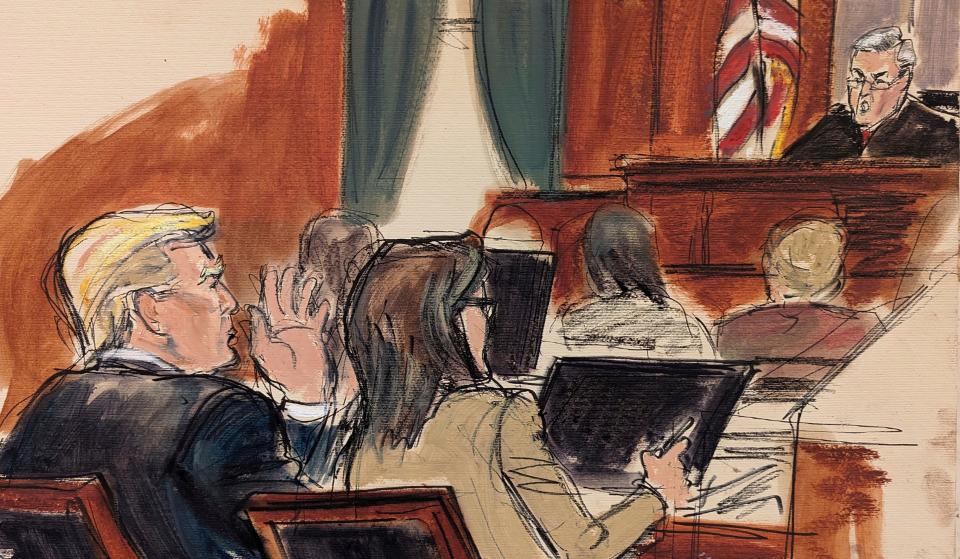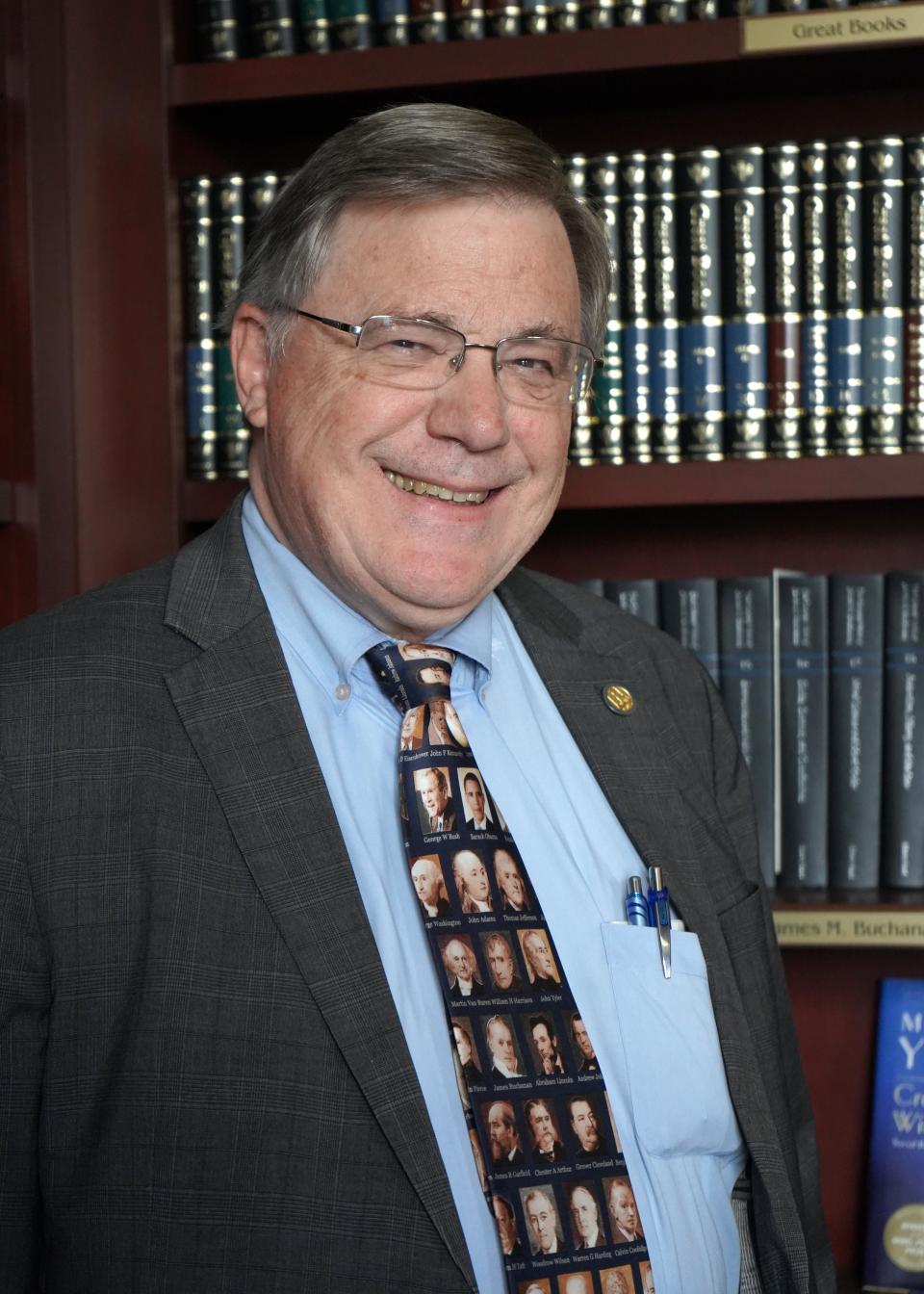Sorting out the legal issues surrounding Donald Trump
- Oops!Something went wrong.Please try again later.
- Oops!Something went wrong.Please try again later.
As the presidential nomination season begins, Donald Trump faces a plethora of civil and criminal legal suits.
In New York, E. Jean Carroll is back in court after she filed another defamation suit against him after previously winning a $5 million judgment against the former president for sexual abuse and defamation last May. Meanwhile, New York Attorney General Letitia James has upped the ante to $370 million in damages in the civil case she had brought against Trump for fraudulent business practices. In March, Trump is set to face further criminal charges in New York for alleged hush money payments to an adult film actress.
Special Counsel Jack Smith is pursuing a criminal conspiracy case against Trump in Washington, D.C., for attempting to incite crowds to subvert the election results and, in Florida, for illegally retaining and sharing classified documents. The D.C. case partly hinges on whether Trump’s speech on and before Jan. 6 was protected by the First Amendment or whether it constituted illegal incitement to imminent violent action and to other illegal activities. Trump’s explanations for retaining classified documents remain weak.

In Georgia, Fulton County District Attorney Fani Willis has indicted Trump for racketeering in his efforts to overturn the results of that state’s election. In the meantime, Maine’s secretary of state and the high court of Colorado have ruled that the insurrectionist provision in Section 3 of the 14th Amendment bars Trump’s name from appearing on their states’ Republican primary election ballots.
The U.S. Supreme Court’s decision to hear the state ballot access cases should clarify some key issues including whether Trump is an “officer” of the United States and whether he has violated his oath to the Constitution. The common-sense views that the occupant of the highest office in the land is such an officer and that taking an oath to “preserve, protect, and defend” the Constitution is equivalent to taking one to uphold it will likely to prevail over more fascinating technical arguments.
The court must still decide whether states have proved through proper due process that Trump engaged in or gave aid or comfort to insurrectionists (the Colorado court relied quite heavily on the testimony of a sociologist) and whether individual states can determine this absent congressional authorization.
Because Republicans initiated the ballot suits, Trump’s arguments that Democratic officials are necessarily biased on such matters is weak. His argument that voters rather than state officials should decide whether he was an insurrectionist has considerable merit, but so does the view that the Constitution constrains both voters and candidates.
Trump’s claim of near absolute immunity for all alleged criminal acts committed while in office is the most consequential, but it is weak. His attorneys note that no prior president has been prosecuted for such criminal activity without establishing that such presidents engaged in similar criminal activities. Moreover, in ruling against President Nixon’s attempts to suppress tape recording, in U.S. v. Nixon, the Supreme Court affirmed the importance of pursuing justice in criminal cases.
The most striking assertion in Trump’s Jan. 2 brief for the U.S. Circuit Court involving election interference is that his actions reflected “disputes that date back to November 2020, continue to this day in our nation's political discourse, and are based on extensive information about widespread irregularities in the 2020 election.” The source of this claim is none other than Donald J. Trump as posted on Truth Social that same day referencing an anonymous "SUMMARY OF ELECTION FRAUD IN THE 2020 PRESIDENTIAL ELECTION IN THE SWING STATES." For the record, Trump was unable to establish such fraud in any of the more than 60 cases he initiated on the subject.
Even before becoming president, Trump bragged that he could “stand in the middle of Fifth Avenue and shoot somebody” without losing any voters. Imagine a president doing so without being subject to the criminal justice system. America's Founders repudiated the idea that the king can do no wrong for the sacred principle that no one is above the law.
Similarly, Trump’s claim that a criminal trial would be a form of double jeopardy after the U.S. Senate failed to remove him from office for impeachable offenses is exceptionally weak because it contradicts arguments that he and his supporters made at the time.

This year could decide not only who will serve the next presidential term but whether past and future presidents will be immune from or subject to constitutional restraints.
Dr. John R. Vile is a professor of political science and dean of the Honors College at Middle Tennessee State University and the author and editor of numerous books on the U.S. Constitution and related topics.
This article originally appeared on Knoxville News Sentinel: Sorting out the legal issues surrounding Donald Trump

